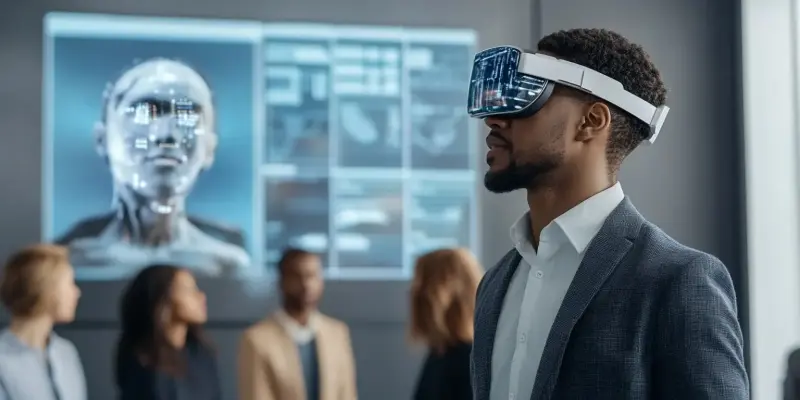The rapid pace of artificial intelligence (AI) technological advancements has begun outstripping the abilities of current workplace training programs to keep up, leading to feelings of dissatisfaction, particularly among Generation Z. The TalentLMS Annual L&D Benchmark Report, surveying 1,200 U.S. employees, highlights the growing concern that job skills are becoming obsolete faster than training programs can adapt. This creates a potentially dangerous gap between the skills employees have and those they need to effectively utilize new technologies being introduced in the workplace. For businesses striving to stay competitive and innovative, the urgency to address this gap cannot be overstated.
One of the report’s most striking findings is that 63% of employees believe their current training programs require significant improvement. This sentiment is most strongly felt by Generation Z workers, who express the highest levels of dissatisfaction compared to their Millennial counterparts, who report more satisfaction with existing training initiatives. A glaring issue also emerges around guidelines for AI tool usage, as 54% of employees indicate they lack clear directions on how to utilize these tools effectively. Additionally, 65% of those surveyed express a desire for training on the safe and ethical use of AI, underscoring a critical disconnect between advancements in technological tools and the availability of corresponding training resources.
The Engagement and Retention Challenge
The usual engagement with training programs also poses a significant challenge, with 58% of respondents admitting to multitasking during sessions. This tendency to engage in other activities is even more common among Millennials and Generation Z, indicating that current training methods fail to captivate and hold their attention effectively. Another disturbing revelation is that nearly one-third of employees forget the training content soon after completing the sessions, clearly highlighting the inefficacy of traditional training methods and the need for more innovative and effective strategies.
Employees have expressed a preference for more dynamic and interactive formats such as multimedia (53%) and self-paced learning modules (49%). Despite this, 23% are discouraged from pursuing additional training due to budgetary constraints. The report suggests that finding cost-effective yet engaging training solutions is crucial. As employees feel increasingly left behind by the swift pace of AI advancements, many express a willingness to adapt and upskill; 49% of respondents believe AI is progressing faster than their company’s training capabilities, while 69% stress the need for quicker delivery of new training programs to help bridge the skills gap, suggesting a clear demand for more proactive and responsive learning and development initiatives.
The Need for Comprehensive and Flexible Training
The rapid advancement of artificial intelligence (AI) is outpacing the capacity of current workplace training programs, causing dissatisfaction, especially among Generation Z. According to the TalentLMS Annual L&D Benchmark Report, which surveyed 1,200 U.S. employees, there is a growing concern that job skills are becoming obsolete faster than training programs can adapt. This creates a potentially dangerous gap between the skills employees have and those they need to effectively use new technologies in the workplace. For businesses to remain competitive and innovative, addressing this gap is crucial.
One of the report’s most notable findings is that 63% of employees believe their existing training programs need significant improvement. This feeling is strongest among Generation Z workers, who show the highest levels of dissatisfaction, unlike Millennials who are more content with current training efforts. Additionally, the report highlights that 54% of employees lack clear guidelines on how to use AI tools effectively. Furthermore, 65% want training on the safe and ethical use of AI, highlighting a critical disconnect between the rapid progress of technological tools and the availability of corresponding training resources.

